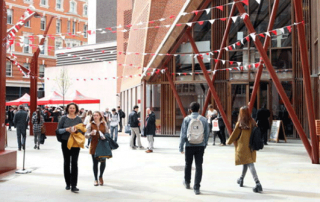Matthew Adler (Duke) “The structure of luck prioritarianism”
Matthew Adler (Duke) “The structure of luck prioritarianism”
Matthew D. Adler is the Richard A. Horvitz Professor of Law and Professor of Economics, Philosophy and Public Policy at Duke University, and is the founding director of the Duke Center for Law, Economics and Public Policy.










Connect with us
Facebook
Twitter
Youtube
Flickr